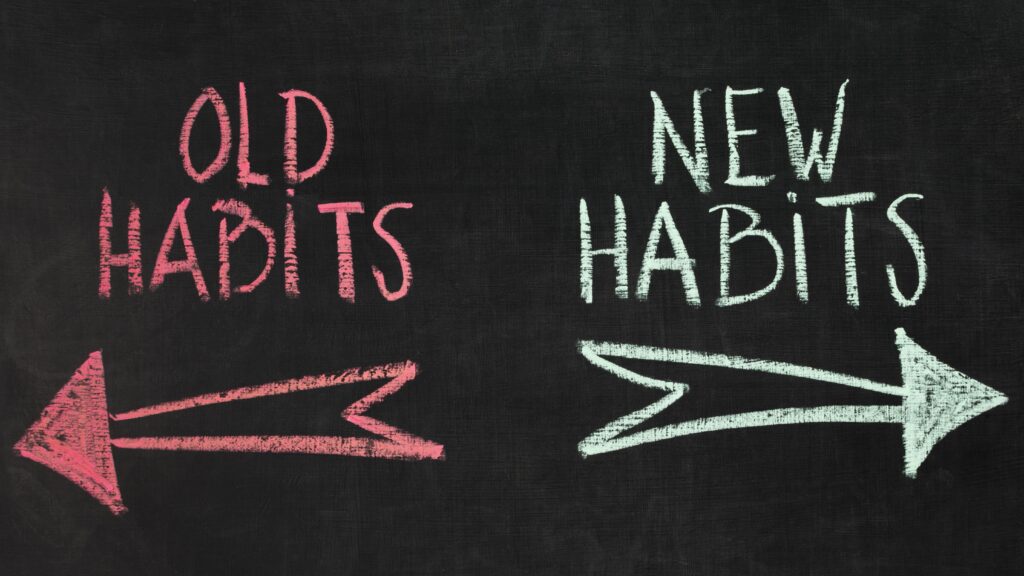You know, as we go through life, many of us face a wide range of health issues, from cancer and diabetes to autoimmune conditions and metabolic disorders. Over the years, we’ve had the privilege of helping numerous individuals navigate these challenges, and it’s clear that certain lifestyle changes can make a huge difference in recovery and overall well-being. From cancer to fat loss, pursuing a better life is within reach of everyone; it only matters what choices you make in your everyday life.
Today, I want to share some of the most powerful lifestyle changes that have helped our patients feel better, recover, and even achieve remission. These insights are drawn from real-life cases, and they highlight the importance of a holistic approach to health.

We’ll be addressing how you can transform your life and health with the five pillars of lifestyle: deep cellular nutrition, adequate exercise, quality sleep, emotional health, and spiritual wellness. By focusing on these areas, you can tap into your body’s natural ability to heal and thrive. Let’s break it down and see how these changes have transformed lives.
Table of Contents
ToggleDeep Cellular Nutrition
When it comes to nutrition, one size definitely does not fit all. It’s so important to respect your bio-individuality when making dietary choices. We all have different DNA, genes, and unique environmental factors that influence how our bodies react to certain foods. This is why the same diet that works wonders for someone else might not be the best for you. Here’s what you can do differently:
-
- Balance your meal nutrition profile: Instead of jumping on the latest diet trend, focus on smart carbs, proteins, and fats. This means choosing the right amount and quality of each macronutrient that suits your body and health needs. For instance, smart carbohydrates include whole grains, fruits, and vegetables that provide sustained energy and fiber. Smart proteins can be lean meats, fish, legumes, and plant-based options that support muscle repair and overall health. Smart fats are those found in nuts, seeds, avocados, and cold-pressed oils essential for brain function and hormone production.
- Add seeds and nuts to your plan: I’ve seen so many patients benefit from incorporating nuts and seeds into their daily routines. Almonds, walnuts, pecans, macadamia nuts, pumpkin seeds, sunflower seeds, and flax seeds are packed with nutrients and can be easily added to your meals.
- Incorporate Apple Cider Vinegar: One way to boost your metabolism, improve nutrient absorption, and protect your health is by consuming raw apple cider vinegar diluted in a glass of water daily.
- Switch your Cooking Oil: Switching from refined oils to cold-pressed, natural oils can significantly reduce inflammation markers. Cutting down on refined sugars and junk food is a game-changer. Not only does it help you feel better, but it also reduces cravings over time.
- Eat the right way: How you eat your meals also matters when it comes to fat loss. So many people finish their meals without an understanding of what’s on their plate. Start by eating a light salad, followed by cooked veggies, then move to protein and carbohydrates. Chew your meals mindfully and cut out digital distractions while eating; slowing down rather than gobbling a meal can help with proper digestion.
- Follow the Circadian Rythm: Aligning your eating habits with your circadian rhythm is another powerful tool. Eating closer to sunrise and sunset, and following a consistent meal schedule can do wonders for your digestion and energy levels.
- Try Fasting: Fasting has also shown incredible benefits, but it’s not about rigid rules. Personalized fasting windows, whether it’s 12 hours, 16 hours, or somewhere in between, can help you find the right balance for your body. Start small and gradually extend your fasting period, always listening to how your body responds.

By making these mindful changes to your nutrition, you harness your body’s natural intelligence to work for you, promoting healing and overall well-being.
Adequate Exercise
When it comes to exercise, it’s all about a holistic approach. We need to focus on a balanced regimen that includes walking, yoga or stretching, and muscle training. Each of these components brings unique benefits and caters to different needs across various age groups and health conditions.
- Walking: Walking is one of the most accessible and effective exercises you can do. It’s fantastic for cardiovascular health, helps in maintaining a healthy weight, and is gentle on the joints. Whether you’re young or old, a daily walk can make a significant difference. It’s low-impact but high-reward.
- Yoga: Yoga and stretching are crucial for flexibility and mobility. They help maintain the range of motion in your joints, improve posture, and reduce the risk of injuries. Yoga, in particular, has the added benefit of enhancing mental clarity and reducing stress through its meditative aspects. Stretching is equally important, especially as we age, to keep our muscles supple and prevent stiffness.
- Strength Training: Muscle training is essential for building and maintaining strength. This doesn’t mean you have to lift heavy weights. Even bodyweight exercises like calisthenics or using resistance bands can be incredibly effective. Muscle training boosts your metabolism, supports bone health, and helps manage chronic conditions like arthritis and diabetes. It’s especially important as we age to prevent muscle loss and maintain overall physical function.

Remember to Show Up Regularly
Consistency is key. It’s not about how intense your workouts are; it’s about how regularly you move your body. Aim for a mix of these exercises throughout your week to keep things interesting and to work different muscle groups. Variation not only keeps you motivated but also ensures that your body remains flexible, strong, and healthy. For example, you might walk on Mondays, do yoga on Wednesdays, and strength train on Fridays. This balanced approach helps in creating a sustainable exercise routine that you can stick with in the long run.
The goal is to enjoy your exercise routine and make it a regular part of your life. Find what you love; a morning walk in the park, a calming yoga session, or a strength training workout at the gym. Your body will thank you, and you’ll feel the benefits in every aspect of your life.
Quality Sleep
Quality sleep is the cornerstone of good health. It’s during deep sleep that our bodies undergo critical processes for both physical and mental rejuvenation. Deep sleep is when the body repairs tissues, builds muscle, and strengthens the immune system. It’s also when the brain consolidates memories and processes emotions, which is essential for mental health.

Sleep deprivation can wreak havoc on your body and mind. There’s a well-established link between lack of sleep and increased inflammation, which is a common factor in many chronic diseases like diabetes, cardiovascular diseases, and even cancer. Mental health issues, including anxiety and depression, are also closely tied to poor sleep patterns. Inadequate sleep can lead to higher stress levels and difficulty managing emotions, creating a vicious cycle of poor mental health and sleeplessness.
Here’s how you can improve your relationship with sleep:
- Create a restful space: To improve sleep quality, start by making your bedroom a sanctuary for rest. A dark room signals your body that it’s time to wind down, promoting the production of melatonin, the sleep hormone. If your environment is bright, consider using an eye mask to block out light.
- Try Diaphragmatic Breathing: Deep breathing exercises or pranayama can significantly enhance sleep quality. Simply slowing down your breathing helps shift your body from the fight-or-flight mode (sympathetic nervous system) to a state of calm and repair (parasympathetic nervous system). This transition is crucial for falling asleep and staying asleep.
- Limit Screen Time: Limiting gadget use before bedtime is another practical tip. The blue light emitted by screens can interfere with melatonin production. Try to turn off all electronic devices at least an hour before bed. If you must use your devices, blue light-blocking glasses can help mitigate the effects.
- Bedtime spiritual Routine: Incorporating prayer or relaxation techniques into your bedtime routine can also be beneficial. Engaging in prayer, meditation, or gratitude journaling can help clear your mind of worries and create a sense of peace. This mental calmness can make it easier to fall asleep and improve the overall quality of your rest.
Remember, quality sleep is not a luxury; it’s a necessity. Prioritize it, create a conducive sleep environment, and incorporate these practices into your nightly routine to enhance your overall well-being.
Emotional Health
“Self-discipline and consistency: Master this. Everything else is secondary or sometimes not even needed. Massive content consumption, learning more but not practicing, talking but not doing, preaching but not practicing. Keep it real.”
- Luke Coutinho
Chronic stress and anxiety are correlated with almost every single disease that exists today. One of the most effective ways to improve emotional wellness is by limiting social media usage. By taking this step, you can effectively cut off social media and the trolls. Try to schedule social media breaks, and limit your time spent on such apps.
Our clients who’ve done this instantly said, “My symptoms are better.” And it’s a no-brainer. Social media is going to depress you, even if you’re not depressed, even if you have a strong mind, but you’re using it mindlessly.
It’s essential to reflect on how social media usage affects your mood and mental state. Ask yourself, “How can I reduce my time on social media? How can I choose the handles I want to follow that inspire me, rather than demotivate me or corrupt my mind?” This conscious effort can significantly improve your emotional health and overall well-being.
Spiritual Wellness
This is a powerful one. You’re as strong as your connection to the divine intelligence. Mastering and practicing acceptance, letting go, and surrender can be transformative. This made people instantly feel better and more empowered to handle their problems or face them. Embracing acceptance helps reduce resistance and stress, allowing a sense of peace and clarity to emerge.
Additionally, spending time in nature is a profound way to connect with oneself. A lot of people reported that just spending time in nature made them feel so connected with themselves and they felt so good. Even though they still had problems in life, they felt better and they felt stronger.

Nature has a unique ability to ground us, providing a calming environment that fosters introspection and tranquility.
Creating a sense of calm within allows the body’s intelligence to work optimally. When we’re in constant disharmony, everything goes wrong. Prioritizing spiritual wellness through acceptance and nature can lead to a more balanced and fulfilling life.
Final Word
Our goal remains clear: to pursue a holistic, integrative approach to health. While medications address symptoms, it is crucial to tackle the root causes through lifestyle changes. How are you managing the side effects of your medications? At the end of the day, the responsibility for our health lies with us.
As we move forward, let’s focus on incorporating the two most powerful “vitamins” into our lives: Vitamin D, representing self-discipline, and Vitamin C, standing for consistency. Investing in these values will transform your life. You’ll see improvements not just in your health but in your relationships and work as well. Understanding that you are capable and powerful in handling life’s challenges is key.
When we’re in disharmony, we feel helpless, aimlessly searching for extreme solutions. Instead, slow down and realize that a strong foundation is essential. With a solid foundation, simplicity becomes a luxury, and the path to health and well-being becomes clearer and more attainable.
Ready to take the first step towards a healthier, more joyful life?
Start small, with one manageable change today.
Know more about our Wellness Program here.
Set up a one-on-one consultation with our integrative team by reaching out to us at
1800 102 0253 or write to us at [email protected].
Disclaimer: Always make an informed choice. Keep your healthcare provider in the loop before trying anything new, especially if you are going through a medical condition or are on medications.
Shortcode:
Team Luke
Our team of registered dietitians, certified nutritionists, lifestyle coaches, medical practitioners, and holistic health experts come together to share practical, accessible insights for your well-being. Whether you're seeking tips on preventive health, managing a specific condition, or simply looking to live a more balanced life, you’ll find a wealth of easy-to-apply knowledge here.
Start Your Wellness Journey
Feeling inspired to take the next step in your wellness journey? Connect with us to explore how our tailored programs can support your health journey. Your transformation is just a conversation away.



